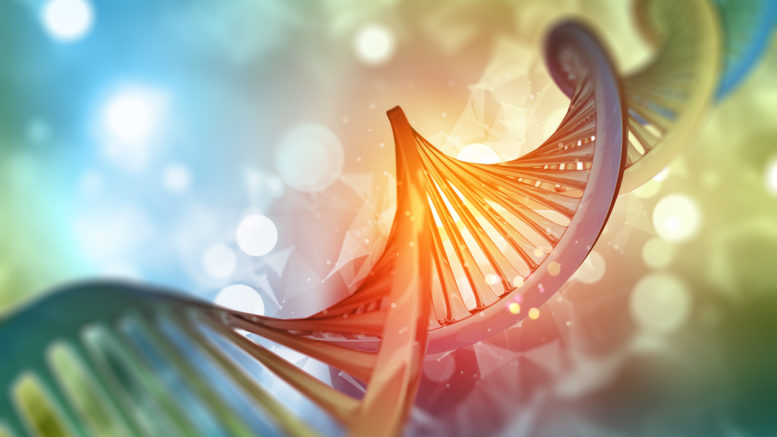A good diet can affect our DNA and improve our health by interacting with our genome. Nutrigenomics is one of the newest and most advanced translational disciplines that promise to shed a light on the protective effect of food against diseases such as breast cancer. However, this science also provides us with a deeper understanding on how the right diet can assist us in managing or preventing many other conditions as well.
What is Nutrigenomics and how does it work?
Nutrigenomics is a translational discipline that integrates nutrition and genetics to investigate the effects of food and its constituents on gene expression. Although some diseases can occur when a specific gene or mutation of the DNA are present, their presence is not always sufficient to establish a causal relationship. Instead, it is the interaction of that genetic potential with external factors that include nutrition, that may (or may not) determine whether the disease will manifest or not.
Modern research already established how a healthy diet, rich in fruit and vegetables is critical to prevent certain cardiovascular diseases, as well as other diseases such as cancer and diabetes. Many substances such as vitamins, fatty acids and other phytochemicals are able to interact at a molecular level by binding to transcription factors, and then inhibit or enhance their activity.
Nutrigenomics is a science that can provide us with valuable information about our genome to understand the best dietary approaches that can specifically grant us a long and healthy life.
The practical applications of Nutrigenomics against cancer and chronic diseases
Knowledge of nutrigenomics can be applied to reduce the risk of suffering from serious or chronic diseases later in life, such as diabetes, cancer, and cardiovascular diseases. A common instance of this application, is the consumption of certain nutrients with antioxidant properties to prevent the damage to DNA caused by free radicals.
Several nuclear receptors act as nutrient sensors by modifying DNA transcription of specific genes in response to dietary changes. The peroxisome proliferator activator receptor-α (PPARα), for example, can be stimulated by certain fatty acids. This receptor will then interact with more than 4000 target genes involved in vital metabolic processes such as amino acid metabolism, ketogenesis, and gluconeogenesis and after being. The common genetic variant of APOC3 (rs5128) is also linked to the same mechanisms, and they can both contribute to the progression of the metabolic syndrome in adults.
Cardiovascular disease, on the other hand, is associated with genetic polymorphisms in desaturase apolipoprotein A1, A2, and A5, and apolipoprotein E. When these mutations are identified, an appropriate diet that prefers certain fatty acids can be chosen.
Several compounds found in food might target some of the metabolic pathways that get altered by cancer, too. At least 40% of cancers can be influenced by dietary choices, as some substances absorbed with food can effectively interfere with the development of malignancies during both the earlier and later stages. By improving the impact of the individual genotype on tumorigenesis, nutrigenomics can be used to create a personalized chemopreventive diet. If you want to get involved & support breast cancer fight, raising awareness towards nutrigenomics can help many people find a new weapon in this uphill battle.
Conclusion
Nutrigenomics still is a relatively new science that is walking its first steps. However, it is an emerging force that will certainly help us live longer, healthier lives in the near future.
